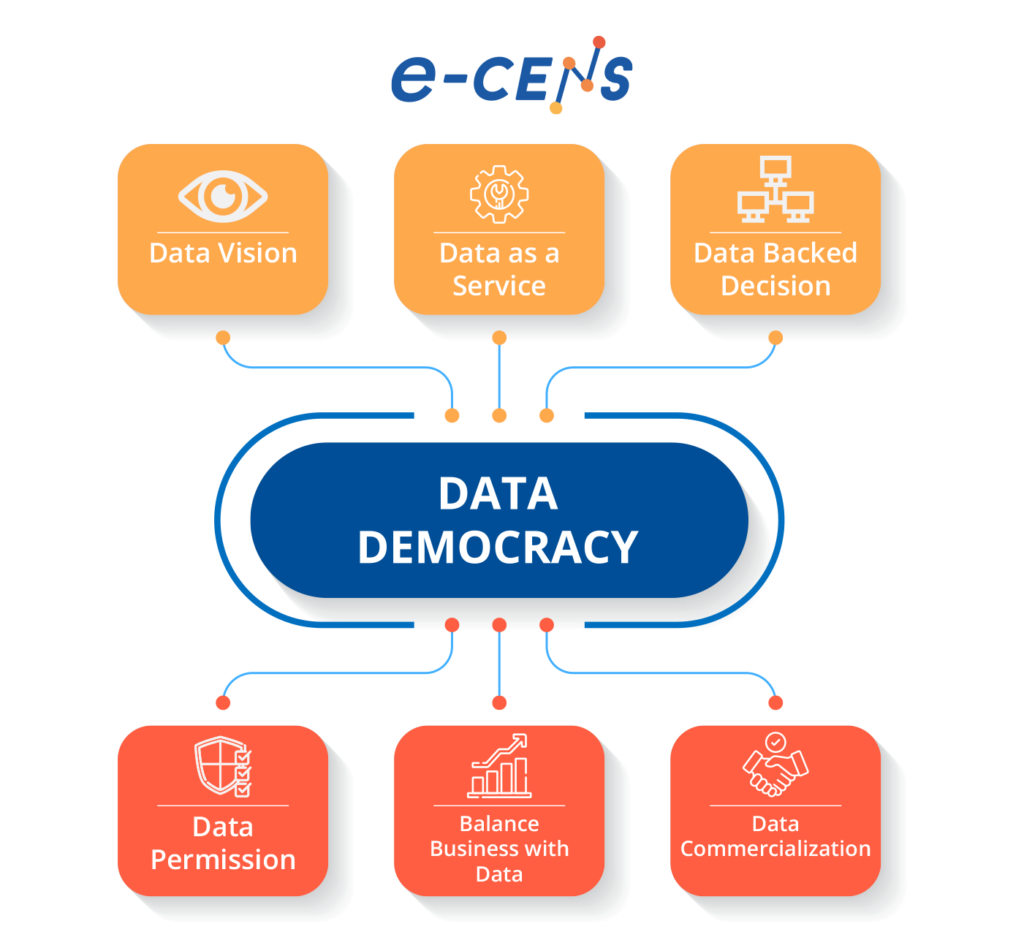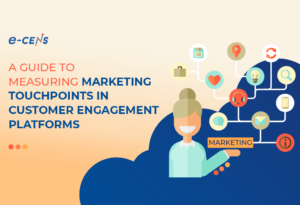Imagine standing before a vault, its heavy door finally swinging open after years of being tightly sealed. Inside lies not gold or jewels but something far more valuable in today’s economy: data. This is the era of data democratization—a revolution that is quietly reshaping industries, empowering individuals, and igniting innovation on a global scale.
Yet, in an age where information flows like digital rivers, many are stranded at the banks, watching as the current of progress passes them by. The power of data remains locked away, often concentrated in the hands of the few. But what if we could bridge this divide? What if data became as commonplace as electricity—flowing freely into homes and businesses, lighting up possibilities and powering dreams?
Join us as we delve into the stories of those already harnessing this movement, explore the tools breaking down barriers, and unveil strategies for you to claim your seat at the table of data-driven decision-making.
Welcome to the conversation. Welcome to the future.
And we’ll start this conversation with the simple question of what data democratization is.
The answer is very simple: it’s making data available to everyone in an organization or a community without having to be tech-savvy or resort to asking someone with technical expertise to help.
Thus making data available to everyone, regardless of their technical expertise.
The goal here is to get everyone comfortable dealing with data without a technical background.
In this blog, we’re going to be covering multiple questions that any organization, questions like:
- Why data democratization matters
- Common data challenges it helps solve
- How to democratize data in an organization
- The many benefits realized
We hope that you’ll gain a clear picture of how data democratization can transform an organization – and that you’ll be inspired to be a champion for democratizing data in your own company!
Also read to know more on What is Data Governance.
Why Does Data Democratization Matter?
The thing about data democratization is how limiting data access impacts an organization’s effectiveness.
Imagine if few people had access to the data and everyone in your organization who wanted access to it needed to send a request to access the data.
It is incredibly frustrating for them and wasteful for everyone to be bogged down in running basic analyses for others. We needed to open up data access to more employees to empower them.
However, on the other hand, companies that implemented a robust way of giving everyone access to data were more agile, responsive, and had a much faster working rhythm because they didn’t have to wait for anyone.
This is just one of the problems that data democratization solves. Your customers also need access to their data, not your employees!
And so, we’ll discover and highlight the issues that data consolidation and gatekeeping cause and why you need to implement a data democratization framework quickly.
Below are 4 reasons why Data democratization is important:
- Lack of Access
- Distrust in Data
- Skill Gaps
- Misalignment with User Needs
Lack of Access
By making data accessible company-wide, every employee can find the information they need to do their job. No more waiting on the analytics team or being blocked from key data.
Distrust in Data
When only a few people can access data, errors and inconsistencies can creep in. Opening up data access increases visibility and accountability, improving data quality and employees’ trust.
Skill Gaps
Not everyone has formal data analysis skills. However, when provided with the right tools and training, nearly all employees can work with data effectively for their needs.
Misalignment with User Needs
IT and analytics teams don’t always know users’ data needs. Democratization allows users to access data tailored to their use cases rather than limited by centrally-controlled tools.
Beyond addressing challenges, the act of democratizing data brings a critical cultural shift – toward a data-driven organization. Access to data is empowering. It taps into employees’ potential and innate curiosity. And it ultimately drives better, faster decisions across an organization.
How to Democratize Data
Democratizing data in an organization is an ongoing process. Based on my experience, success requires focus across three areas:
Provide Broad Data Access
- Take down silos by integrating data from multiple systems into a central data warehouse or lake that makes information accessible enterprise-wide
- Invest in self-service analytics tools like Looker, Tableau, or Power BI and enable users to access data independently
- Implement governance and security controls to maintain trust while still providing access
First, pull all the data from various sources into one place, so if you have data scattered around in SaaS solutions like Salesforce and Marketo, pull them in a cloud data warehouse like Snowflake.
That’ll give you a unified view of data. So, you can then roll out Looker as our self-service BI platform.
Your analytics team should publish data models that are structured data for business users’ needs. This meant marketing, sales, finance, and other teams could leverage Looker to build reports dashboards and explore data tailored to their use cases – no SQL coding needed!
Following these two simple steps, you’ve brought data to everyone in your business, regardless of their function, in a format they’re familiar with, thus saving you time and money.
Build Data Literacy
- Provide training to employees on interpreting data, spotting trends, and identifying insights through online courses or workshops
- Create data guides with definitions of key metrics and dimensions to aid understanding
- Start small by identifying power users within business units to ramp up skills, then scale more widely
Launch a piloted data skills training with your Sales team. Give them a simple workshop walking through metrics like lead velocity, sales cycle, churn, etc.
And don’t forget to provide a data dictionary with definitions tailored to sales. Equipped with this, your Sales Ops leaders could self-serve data and share insights with reps without waiting on any team!
Based on the success of the sales pilot, you could partner with a platform like DataCamp to roll out data skills training to our entire marketing organization.
Learners completed courses focused on analytics tools, SQL, data interpretation, data-driven storytelling, and more. That would allow the team to scale the training while giving learners flexibility.
Promote a Data Culture
- Communicate how using data helps teams meet objectives – connect data to real business value
- Incentivize data skills development through learning rewards, promotions, and cross-functional data projects
- Celebrate data wins across the organization
Here’s an example of how data democratization builds a sense of community within your company. This situation happened to one of our team members before, and he wanted to share it with us.
“Our marketing team had a fantastic data win that really shifted mindsets on the power of self-service analytics. The team noticed a concerning drop in website leads and used Looker to investigate the issue.
During a recent site update, they quickly spotted that the lead form placement on blog pages was broken. Because they could analyze the data independently, marketing could confirm the problem and get our dev team working on a fix within a day faster than going through my analytics team.
We spotlighted this win across the whole company in an internal newsletter. This created excitement and drove more data skill-building momentum.”
6 Benefits of Data Democratization

Now that we’ve been through the process of enabling data democratization at multiple organizations, we’ve seen firsthand the many benefits:
1 – Improved Data Literacy
More access and training means a more data-literate workforce who feels confident working with data daily. At my current company, we’ve measured a 22% increase in data literacy scores after just six months of skills training through DataCamp.
2 – Faster, Higher Quality Decisions
Data democratization means employees aren’t waiting around for insights to make decisions. And they can validate assumptions or spot questionable data on their own, improving decision quality. Our average decision-making time has decreased by 35%.
3 – Greater Innovation
When more people interact with data, new ideas and use cases emerge. Our customer success team combined data on high-risk accounts and user behavior trends to develop a proactive churn reduction program – an innovative approach we never would have explored without their deeper data access.
4 – Increased Productivity
Employees save significant time when they have self-serve access to data versus relying on others. Our recent survey showed that 75% of our data users save 2+ hours per week by leveraging self-serve analytics. Those hours can be reinvested in more value-add projects.
5 – Improved Collaboration
Data becomes a common language across teams, providing objective insights to align decisions. Our cross-functional squads have improved collaboration by 20% through shared data skills training and access to unified data sources.
6 – Higher Employee Satisfaction
Access to data is empowering and taps into critical skills like curiosity and critical thinking. Our data upskilling program has contributed to a 15-point jump in employees’ Net Promoter Score.
The outcomes above have very real business impacts – our organization has seen 32% faster growth and 23% higher profit margins since prioritizing data democratization over the past two years. While creating a data-driven culture takes time and investment, the long-term payoff is game-changing.
Key Takeaways on Data Democratization
- Access is empowering: Providing enterprise-wide access to integrated, accurate data taps into employees’ potential in amazing ways.
- Skills unlock value: Simply providing access to data doesn’t guarantee it will be used effectively. Investing in ongoing training in data skills like analytics, visualization, and storytelling allows employees to get true value from data.
- Culture is key: Moving to a data culture doesn’t happen overnight. Leadership must consistently communicate the value of data, incentivize skill-building, and celebrate data wins.
- Outcomes over tools: There are many technology solutions for access to data and analytics. Don’t get hung up on tools – focus first on solving key user challenges and empowering your people. The tools will follow.
- It’s a journey: Full data democratization takes time – expect to iterate as employee data skills and needs evolve. But the long-term rewards are immense.




